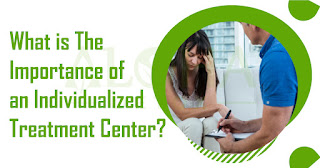What is The Importance of an Individualized Health Recovery Center?

An individualized treatment plan helps each individual recover optimally for them emotionally by choosing the best Health Recovery Center , socially, and cognitively. There may be some overlaps in treatment, such as attending 12-step meetings or group therapy. However, the treatment plan should cover each individual’s specific situation. This may include an individualized treatment plan with a therapist who can address specific mental or behavioural problems. When a person undergoes therapy, There may be an overwhelming feeling associated with shame or guilt, which must be addressed individually. There may be individuals who need a more comprehensive treatment approach in terms of medical evaluation and choose the best Health Recovery Center for the best result. Why Aloha Detox is considered one of the best for individualized care? At Aloha Detox is premiere Addiction Recovery Center in Floirda that offers a wide range of treatment options to ensure the care t...


